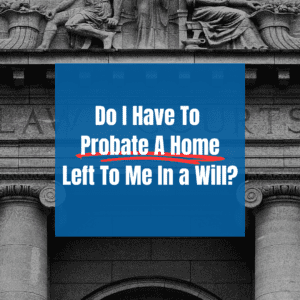Selling A House In Massachusetts: What You Need To Know
 Selling a house requires careful preparation and strategic decision-making. From staging your home to attracting potential buyers to navigating the negotiation process and understanding legal obligations, there are various aspects for a home seller to consider.
Selling a house requires careful preparation and strategic decision-making. From staging your home to attracting potential buyers to navigating the negotiation process and understanding legal obligations, there are various aspects for a home seller to consider.
The home selling process into four distinct stages. Preparation, Pricing, Presentation and Closing. Each phase of the selling process requires careful planning and can be a stage where things can go wrong if not adequately prepared.
This article will explore how to successfully sell a house, such as preparing your home for sale, choosing the right real estate agent, marketing your property, and understanding the closing process.
Additionally, we will address common questions and provide insights to help you easily navigate the home selling journey.
Jump To A Section....
Hiring And Working With A Top Massachusetts REALTOR
A successful home sale starts with hiring the right agent. They can make or break you. And hiring a listing agent should not be taken lightly.
Do you need a superstar agent with their name plastered everywhere? No. Often they are successful because they deal in large numbers and sometimes you can get lost in the crowd.
Make sure you interview three agents. And if you have a friend or family member that is a real estate agent, still interview other agents. You have too much at stake. The real estate agent selection is an important piece of selling your home that you have complete control over.
Look for an agent that will list your home who will provide you with solid information for you to make informed decisions. They should talk to you about what’s happening in the market and pricing information for your home, as well as back up what they say with data.
Then see what they will do to sell your home. Do they have a plan? Is it written down?
Look at their experience and reviews. Experience matters when choosing an agent.
Communication and Collaboration When Selling A House
My most successful home sales are when I have excellent communication with the seller, which is a highly collaborative effort. If an agent has experience and provides good data and a defined plan, ensure you are comfortable with them.
The agent-seller relationship should be both of you working together for a common goal. You will be in a relationship for several months to even over half a year. Make sure that the relationship will be pleasant with strong communication and a spirit of collaboration.
How Much Will I Pay In A Real Estate Commission?
Commissions are not standard from agent to agent. And each region will have a different commission structure. In the greater Boston area, expect to pay somewhere in the range of 4% to 6% of the list price for a full-service listing.
Typically an agent will structure their commission around the level of services they believe you need or insist upon.
Don’t be afraid to negotiate a lower commission. But before you do, don’t be a penny-wise and pound-foolish home seller. An agent who provides a free home staging consultation with a home stager and professional real estate photography may charge more than an agent who doesn’t provide these services.
These services cost money! But, they can also reap more in net proceeds. Its not about how much you pay in commission but what you put in your pocket after the sale.
Legal Considerations When Selling A House
Four Phases of Selling Your House: Preparation, Pricing, Presentation and Closing
Selling your home has four distinct phases we will discuss. Each phase you enter into is a distinct part of the process. Equal attention is needed for each to have a highly successful sale of your home.
The individual phases are filled with many tasks. I am going to just touch on a few of the major points.
Selling A Home: Proper Preparation For A Quick Sale And For Maximum Returns
Preparing your home for sale is crucial in attracting potential buyers and maximizing its appeal. How you prepare your home sets the tone for all the other phases of selling a house.
For most home sellers, getting top dollar for their home is a priority. And preparing the home correctly is what will get a home seller top dollar. Make sure you share your goals with your agent. While most sellers want top dollar and are willing to put the work into the sale, some aren’t. If you want to sell your home as-is or as a quick sale, your agent can provide alternative plans.
By following these tips, you can create a welcoming and visually appealing environment that leaves a lasting impression:
The Three D’s When Selling A House
Preparing your home starts with the 3 D’s. Deep Clean, De-cluttering and De-Personalization.
It doesn’t matter if your home needs updating, a little work or is just a few years old. The 3 D’s will go a long way in presenting your home to the market.
Importance of Deep Clean, Depersonalizing, and Decluttering
Deep cleaning your home is the first step in preparing it for the market. A sparkling home will always impress buyers. Even if your home needs work, they have a clean palette for a starting point.
Depersonalizing your space is essential. Remove personal items such as family photos and distinctive decorations to create a neutral canvas that lets buyers imagine their belongings in the space.
Reduce clutter by organizing and removing unnecessary items to make rooms appear more spacious and organized. Let the buyers see what comes with the house; don’t hide it under your stuff.
I will review a day of showings with a buyer. If I call out a house and the buyer responds, is that the house with all the family photos or the hideous Snow Baby collection or the house with the horrible chocolate brown wall? You have missed the mark; you want them to say, is that the house with the large kitchen island where I can seat the whole family? Or, the house with the beautiful hardwood floors?

How to Stage Your House for Potential Buyers
Staging your house involves creating a visually pleasing setting that allows potential buyers to envision themselves living in the space. Once you covered the 3 D’s its time to finish staging your home.
You Are Selling a House, Not a Home
A key concept I express to home sellers is to take the home out of the house. A key concept to remember is that you sell the house’s benefits and features so the buyers can make it their home.
Your window treatments, carpets, furniture and other personal items make a house your home. Help the buyer visualize your house as their home. Pair down and neutralize your décor.
Updating and Repairing Key Areas When Selling A Home
Consider fixing all the nuisance repairs you have neglected around the house and identify some small updates and improvements that can significantly impact your home.
Identify and address any necessary repairs or updates, such as fixing leaky faucets, replacing outdated fixtures, or refreshing worn-out flooring.
Consider making home improvements to boost your homes resale value, such as updating kitchen appliances or installing energy-efficient features. Rarely is a full renovation of an area of your home recommended. There are very few major updates that give you a 100% return on your money.
Painting Your Home: Choosing Neutral Colors
Fresh paint can give you the best bang for your buck when preparing your home. As a matter of fact, it is one of the few upgrades with a high return. Consider painting key areas of your home that have tired paint or is a highly personalized color choice.
Choosing the right paint colors for your home can significantly affect its overall appeal. Opting for neutral colors creates a blank canvas that appeals to a wider range of buyers.
Consider these tips:
- Select neutral shades such as whites, grays, or beige for walls and ceilings to create a light and airy atmosphere.
- Avoid bold or personalized colors that may not align with buyers’ preferences.
- A consistent color scheme throughout the house creates a cohesive and harmonious feel.
- Choose the right paint finish for the job.

Enhancing Curb Appeal and Landscaping When Selling a House
When selling a home, curb appeal plays a significant role in setting a first impression. If the first impression is good, it sets the entire stage for the showing. Starting out with the wrong impression and it’s hard to turn things around as buyers view your home.
Enhance your homes curb appeal by ensuring the exterior is well-maintained and visually appealing. This includes refreshing the paint, repairing visible damage, and cleaning the windows.
Pay attention to landscaping by mowing the lawn, trimming bushes, and planting flowers to add vibrant colors to the outdoor space. Fresh bark mulch in garden beds can go a long way!
Highlighting Key Features with Furniture and Décor
Strategically arranging furniture and styling your home with tasteful décor can emphasize its best features and create a welcoming ambiance.
Remember, home staging is not about decorating a home. It is about merchandising. Play up the key features of your home while downplaying the less desirable features.
Consider the following:
Arrange furniture in a way that optimizes the flow of each room and highlights its functionality.
Use strategically placed decorative items, such as mirrors or artwork, to draw attention to specific focal points within the house.
Make sure your home spaces are adequately lit with natural light and, if needed, lamps.
Selling A House: Editing Rooms
Less is more!!
How you live in a home can be very different than how you show your home. Pare down your furniture to open up spaces and help create a natural flow to your space.
For example, a primary bedroom may have two or more dressers to accommodate an owner’s belongings. But, if your primary is small, one dresser may help show off the space better than two or more.
When defining and highlighting a room, use the bare minimum. A bedroom is a bed, a dresser and a night table. That’s it.
Your listing agent can be a great resource when selling and preparing a home for the market. Many top listing agents will provide a walk-through to tell you where to spend your time and energy and provide you with great home staging tips. Or, even, provide a home staging consultation with a professional home stager.
By focusing on these aspects of preparing your home for sale, you can significantly increase the chances of attracting potential buyers and achieving a successful sale.
Proper preparation can also be key in getting top dollar for your home.

Selling A House: Price It Right
It is critical to price your property right from the start. No amount of preparation and marketing will get an overpriced home sold. The right asking price make up about 70% of the marketing plan. Get the list price wrong and your home will languish on the market unsold.
Think of it this way. Would you pay a $100,000 for a Hyundai Sonata? Probably not. But, you probably wouldn,t bat an eyelash spending a $100,000 on a Mercedes Benz. Your home needs to be in the proper price category to gain the attention you need.
Pricing a home is a funny thing. It is part science and part art. The underlying issue with pricing a home is that all houses are different. This is where you need to turn to your REALTOR for guidance and local insight.
Proper Pricing Starts With Data
Determining the price of a home is more than just pulling a number out of the air. Data is critical in setting the right price when selling a house.
While it is important to follow the guidance of your agent, don’t just blindly accept. Have a full understanding of why a home should be priced a certain way.
Comps or Comparable Homes
At the core of proper pricing is finding sold homes similar to yours, called comps. Comps will be similar in location, style, size, condition and room, bedroom and bathroom counts.
And, recency of the sale is essential. The sale should have occurred at most 3-6 months ago.
The Real Estate Market
The other data to be reviewed before setting an asking price is the general climate of the real estate market and where it is headed. Trying to battle market trends with your pricing is like a salmon fighting to swim upstream.
Tracking median house prices, days on market and asking to sell prices is some data to track local market trends. Are they rising? Are they falling?
If the market is cooling, it is more critical to avoid pricing your house over the market evenly slightly. If the market rises quickly, you can be more aggressive on your asking price. The market can change on a dime and it is vital to constantly monitor the current climate.
The worst thing you can do is chase a softening market down.
The Comparative Market Analysis
The comparative market analysis is a report that combines all the data to help you determine your house’s sale price.
The CMA will compare comps or similar homes on the market, under agreement and recently sold. This is a very critical report for you to understand as a home seller.
Determining the Best Listing Price for Your Home
The CMA will compile the data and show you what similar homes are selling for. Considering the comps and what is currently happening in the market, your REALTOR will identify an asking price that will achieve your goal.
During your time on the market, your agent will keep you updated on the market, similar homes coming on the market and ones that have sold. If adjustments need to be made, your REALTOR will discuss any changes that need to be made.
Selling A Home: Presentation
Now that you have adequately prepared your home, it is time to showcase it to the buying public.
Pre-listing
Before your home becomes active on the market and after signing a listing contract, your agent will start by preparing information and marketing materials for your home.
Information On Your Home
First, a quick look at your deed and chain of title will help identify current ownership, the past chain of ownership, the legal description, current liens, if there are any easements, restrictive covenants, life estate and more.
A good listing agent will be proactive and head of any problems before they happen.
Sellers Disclosures
A common practice in Massachusetts is for a real estate agency to ask the seller to fill out a Seller’s Statement of Property Condition (SSPC). This is for the seller to provide any information they know about the home.
The primary aim is to inform potential buyers about any known defects or issues with the property. This provides transparency in the sales process and helps protect the seller from future legal claims regarding undisclosed problems.
Typically, this statement will contain questions or checklists about various aspects of the property. Sellers will indicate whether there are known issues in areas such as:
- Structural integrity (foundations, roofs, walls)
- Systems (electrical, plumbing, heating/cooling)
- Appliances included in the sale
- Environmental concerns (like mold, asbestos, or radon)
- Any history of flooding, pests, or other significant events
- Liens or other legal issues associated with the property
Marketing Materials
In the weeks or days leading up to your home going live in the Multiple listing service, your agent will start with preparing marketing materials to promote your home.
These materials may should include:
- Accurate measurements for the rooms in your home. Many agents will include a floor plan as part of the materials.
- Professional quality real estate photos of your home. This could include aerial images with a drone as well.
- Videography of your home to use on social media promotion.
- A marketing landing page of your home.
- A compelling description of your home to be used in the Multiple Listing Service and syndicated to all the major real estate sites.
And more….
Real Estate Photography
Once you start to promote your home, after setting the proper list price, there is nothing more important than the quality of your real estate photographs.
This is the first exposure most buyers will have regarding your home is for sale. Buyers are deciding what properties they want to see online.
They will schedule a showing if your home’s real estate photography compels them. Fail to impress and they move on to another. It all happens in about a span of 20 seconds.
Quality, professional photography of your home is the first step in creating “web appeal.” Which is the first impression your home makes online.

Selling A House: The Importance Of Being New To Market
Now it is game day. It’s time to list your home in the Massachusetts MLS and let the world know its for sale and its potential features and benefits are for sale.
The first few days are critical and all the marketing materials should be ready. Excitement for your home coming to the market is the highest in the first few days.
Be prepared and ready to go. Again your agent will have Don’t rush it if the critical elements of a successful home sale are not ready. As a home sits on the market, momentum is lost.
Ongoing Marketing
Marketing your home will be ongoing throughout the time your home is on the market. And there is nothing more important than your online presence.
A savvy listing agent will flood the internet with imagery and details about your home. This will include social media marketing, Facebook ads, brochures, mailings and more…..
Marketing will also include strategically scheduled open houses and preparing print materials for buyers scheduling showings.
Negotiating and Accepting an Offer
Receiving offers on your home can be exciting, but it’s important to evaluate each one carefully.
Factors to consider include the offer price, contingencies, and additional terms. And the buyer’s ability to secure financing. Your real estate agent can guide you through negotiating with buyers to reach mutually acceptable terms with the buyer.
Getting multiple offers is great but can be chaotic. Your REALTOR will guide you through negotiating and handling multiple offers.
Once you’ve selected an offer that meets your requirements, it’s time to sign it and move forward with the next steps.

Selling A House: Closing
Now that an offer is accepted, much must be done to get to closing day. A strict timeline will be spelled out in your contract that must be adhered to.
The Paperwork Shuffle
Immediately upon accepting an offer, the paperwork shuffle begins. First, the accepted offer must get to the buyer’s mortgage originator. Both the buying and selling sides must have a fully executed contract to be legal and binding. And in most cases, both buyer and seller will have real estate attorneys representing them.
But the ministerial part of the sale is ongoing. Good faith deposits are collected and held in escrow. The sellers have paperwork to provide the closing attorney, the disclosure need to be provided etc…
Your buyer’s agent will promptly ensure everything is where it needs to be. Time is of the essence.
Tracking Contingencies and Critical Dates
Your real estate contract will have some contingencies and critical dates that must be met. Common contingencies in a contract are a mortgage commitment contingency and a home inspection contingency.
Your agent will track and ensure that the buyer meets the dates and that you as the seller, meet your contractual obligations.
Dealing with Inspections and Repairs
Once you’ve accepted an offer, the buyer usually inspects the property’s condition. A pre-listing home inspection can help you identify areas of your home they may need attention. It’s essential to prepare for this phase and address potential issues. Hopefully, you took care of any known issues before listing your home.
Work with your real estate agent and the buyer’s agent to negotiate repair requests if any unknown surprises arise. The real estate market will dictate how hard a buyer can negotiate for repairs after an inspection.
Your agent will guide you through what is happening in the market and general expectations.
Home Appraisal Process
A home appraisal is an estimate of a property’s market value, conducted by a licensed appraiser. Most buyers will be using a home mortgage to buy. And, sellers should understand that the appraisal can significantly impact the sale, as lenders use this evaluation to determine how much they’re willing to loan to potential buyers.
Therefore, ensuring that the house presents well and is in good repair can positively influence the appraised value, potentially preventing financing issues that could hinder the sale.
Your REALTOR will be scheduled and be present at the appraisal inspection. They will guide you in preparing your home for the visit. And, will bring the attention of the appraiser to recent upgrades and any pertinent information that may not be readily available to the appraiser.
Final Walkthrough
While there is no standard, a typical closing will take 30-45 days. One last step before getting to the closing table is the buyer’s final walkthrough. It allows the buyers to verify that the home is being sold in the expected condition and that all work has been completed.
Make sure you are delivering your home in broom-clean condition, vacant and you have met all contractual obligations to avoid any closing day issues. Your REALTOR will schedule and attend the walk-through to represent your interest.
The Closing Table
Finally it is closing day. Your agent should have completed a multitude of tasks to get you there as well as guide you through each step. By now you should have received a final closing disclosure and have a complete understanding of your closing costs.
There will be a final closing disclosure with an accounting of your net proceeds for the sale.
Instructions should have been given on how to receive your proceeds.
There are some documents, including a deed, that need to be signed. And that’s it!
FAQs About Selling A Home
How Do I Choose the Right Real Estate Agent?
How Do I Determine the Best Listing Price for Your Home?
What Attracts Potential Buyers: Online Marketing and Open Houses
What should I know about the closing process and my legal obligations?
How should I handle inspections and necessary repairs?
What To Know About Selling A House in Massachusetts: The Bottom Line
The bottom line is that selling a house is a multi-step process that requires careful planning, effective marketing, and navigating legal obligations every step of the way. Realize I just covered some of the major points and there is much more that goes into it
You will get out of it what you put into it.
Your local Massachusetts listing agent will be an invaluable resource during the process. I know for myself and many of my associates across the country we are immersed on real estate 40-60 hours a week. We are on top of what’s happening in the market right now, how home buyers think, how to price and prepare a home for the market and know all the steps involved.
Following this guide and seeking professional guidance when necessary can maximize your chances of a successful and smooth home sale.

Author Bio
Kevin Vitali is a Massachusetts REALTOR out of Haverhill MA that serves Essex County and Northern Middlesex County in Massachusetts. If you want to buy or sell a home, let me use my years of experience to get you the best possible outcome.
Feel free to contact me to discuss any upcoming moves. I am always happy to answer your questions
Call 978-360-0422 Email kevin@kevinvitali.com
Selling your home doesn’t need to be a challenge with the right guidance. If you are thingking of selling, let’s talk!
My Latest Home Seller Posts
Looking for information on selling a home? Check out my full page of articles with valuable information on marketing a home. pricing a home, preparing a home and much more…..








